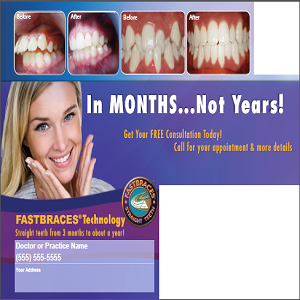Women and Gum Disease Volume III*

 The Teen-Age Years
The Teen-Age Years
As females reach puberty, the production of the sex hormones progesterone and estrogen increases. This hormonal increase can exaggerate the way dental tissues react to the irritants in plaque. Gums may become red, tender, swollen and likely to bleed easily when chewing or brushing teeth. After the early teen years, women may notice less inflammation and bleeding.
Reaching Menopause You may notice a number of physical changes when you reach menopause, including some that occur in the mouth. These may include a burning sensation, altered taste sensations (salty, peppery or sour), a decrease in saliva flow that can result in dry mouth, and greater sensitivity to hot and cold foods or drinks.
Talk with us if you experience any oral problems that you think might be related to menopause. Be sure to mention any medications you are taking (both prescription and over-the-counter products), because many drugs can have dental-related side-effects, including dry mouth. Dry mouth can increase your risk for tooth decay, halitosis (bad breath) and mouth sores. Saliva substitutes may be prescribed to reduce any mouth dryness. Vitamin C and B complexes may be helpful, as well. For good overall health, eat a balanced diet and discuss with your physician how to get the calcium you need to prevent osteoporosis (“porous bones”), the risk of which increases after menopause.
Remember that it is plaque not fluctuating hormone levels, that is the major cause of periodontal disease. Here are ways you can help prevent periodontal disease: Be sure to brush your teeth thoroughly twice a day and clean between your teeth daily with floss or another interdental cleaner. If you need extra help in controlling plaque and gingivitis, we may recommend antimicrobial mouthrinse. Regular dental visits and professional cleanings are essential. Plaque that is not removed can harden into a rough, porous deposit called calculus, or tartar. Tartar can only be removed by a professional cleaning at our office or any other dental office.
Eat a balanced diet for good general health and limit snacks.
*From American Dental Association
-
Recent
- Buhari Must Probe All According to Some so-called Igbo Leaders, Really?
- Does UK Have Dual Citizenship or Saraki just playing fast & loose?
- Saraki Bastardizing Democracy as it is known all over the world
- Who Let the EFCC Dogs Out on Saraki’s Wife, who, who?
- Saraki and Dogara, Will the Real PDP Legislators Please Stand Up? – The Twin of the same coin in the new democracy!
- If I were so lucky to marry Senate President!
- Saraki and Dogara, Will the Real PDP Legislators Please Stand Up? – The Twin of the same coin in the new democracy!
- Conscious Sedation use in dentistry promo
- Conscious Sedation use in dentistry promo
- Invisible Braces Promo Part 2
- Invisible Braces
- Invisalign Promo Part 1
-
Links
-
Archives
- August 2015 (5)
- July 2015 (3)
- December 2011 (1)
- November 2011 (3)
- July 2011 (4)
- May 2011 (3)
- April 2011 (1)
- January 2010 (1)
- December 2009 (3)
- August 2009 (1)
- March 2009 (2)
- October 2008 (2)
-
Categories
- Akwa Ibom State
- APC and PDP
- Crowns and Bridges
- Dental Appliance
- Dental awareness
- Dental Examiner
- Depression
- diabetes
- Everyday Dental Tips:
- Fillings and Cavities
- General Anesthesia
- Godswill Akpabio
- Halitosis/Bad Breath
- Hampstead
- House of Representative
- International Politics
- Kwara State
- Men
- Men and Dental Health
- National Assembly in Nigeria
- Nigeria
- Older Adults
- Older Americans
- Olisah Metuh
- Oral Surgery
- Orthodontics (Aligners)
- Partials and Dentures
- peridontal
- Periodontal/Gum
- Promotions & Marketing
- Quinceanera
- Root Canal Therapy
- Saraki
- Sedation Dentistry
- Senate President
- Senator
- Tooth Wear & Beauty
- UK
- Uncategorized
- Wealth-Building 101
- women
-
RSS
Entries RSS
Comments RSS
